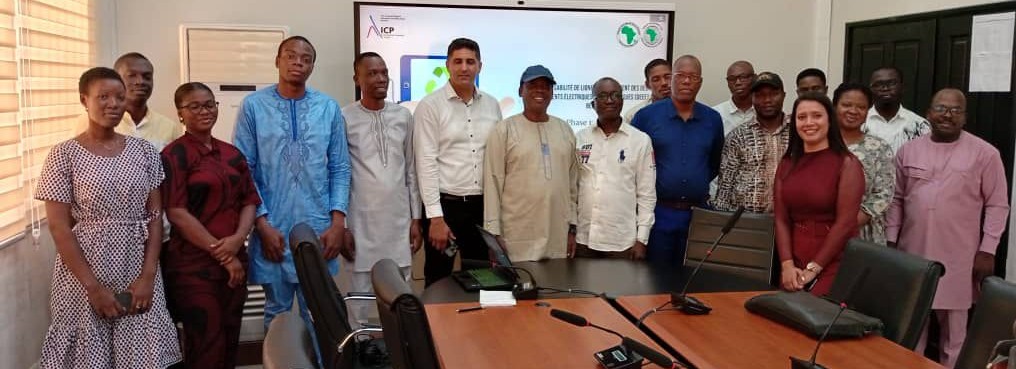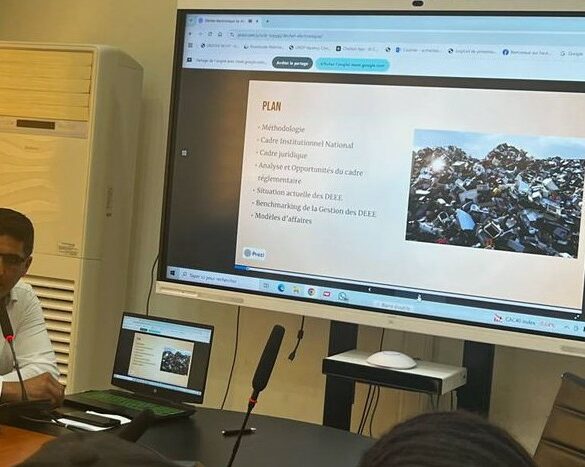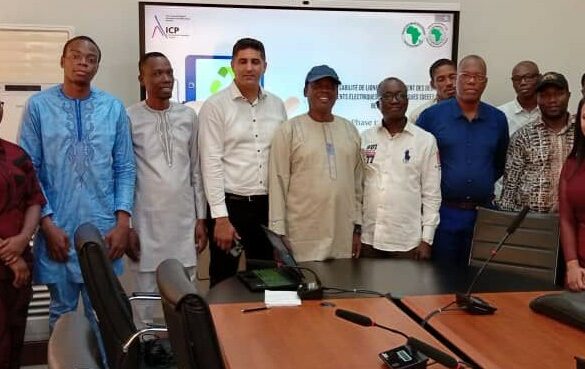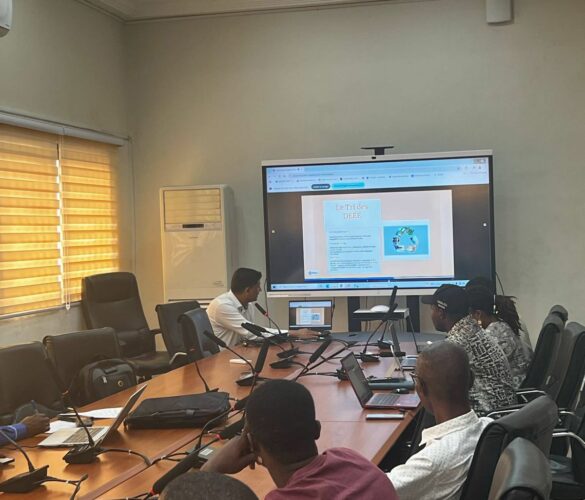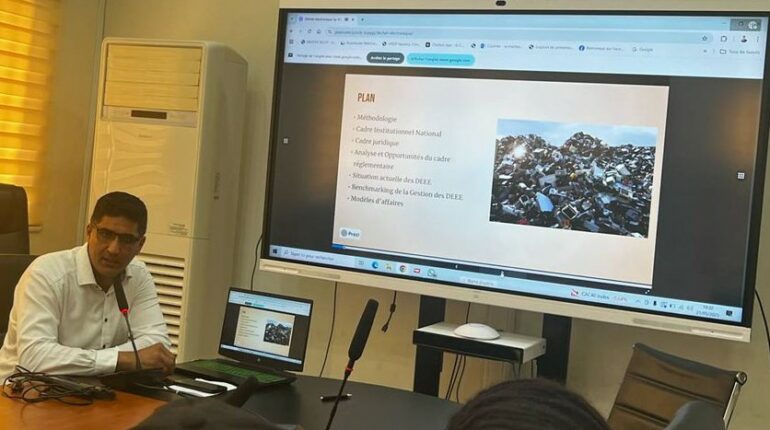
Project Description:
As part of its commitment to the circular economy and better waste management in Africa, ICP Environmental Consulting Tunisia was commissioned in 2025 by the African Development Bank (AfDB) to conduct a feasibility study on the sustainable management of Waste Electrical and Electronic Equipment (WEEE) in Benin.
This mission focused on three priority streams—lamps, refrigerators, and air conditioners—with the aim of proposing a local treatment system adapted to the country’s economic, social, and environmental realities.
Objectives of the study
• Take stock of current WEEE collection and recycling practices in Benin;
• Assess existing capacities and identify infrastructure, regulatory, and partnership needs;
• Analyze international best practices in WEEE recovery;
• Propose concrete recommendations for the establishment and operationalization of appropriate treatment lines (lamps, refrigerators, and air conditioners).
An integrated and participatory approach
The methodology adopted was based on:
• Consultations with all stakeholders (institutional, private, and non-profit);
• Analysis of the regulatory and institutional framework related to WEEE management;
• A technical and economic study incorporating financial models, as well as cost and profitability estimates (NPV, IRR);
• Recommendations for the acquisition of suitable and reliable technologies, accompanied by a realistic deployment plan.
Towards a circular economy in Africa
Through this mission, ICP Environmental Consulting is contributing to the construction of a sustainable WEEE value chain in Benin, reducing environmental impacts while generating new economic and social opportunities.
This study is fully in line with the AfDB’s vision, which supports African countries in their transition to a green and inclusive economy by integrating responsible waste management at the heart of sustainable development strategies.

